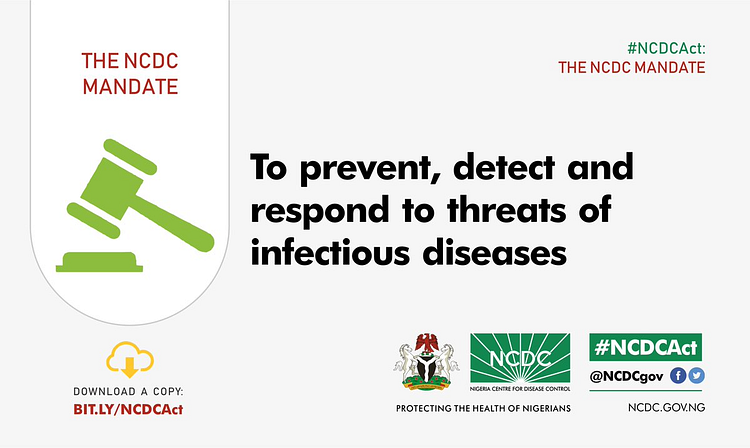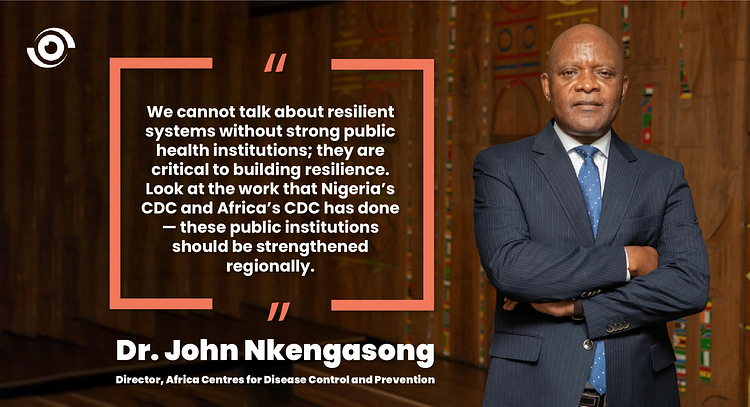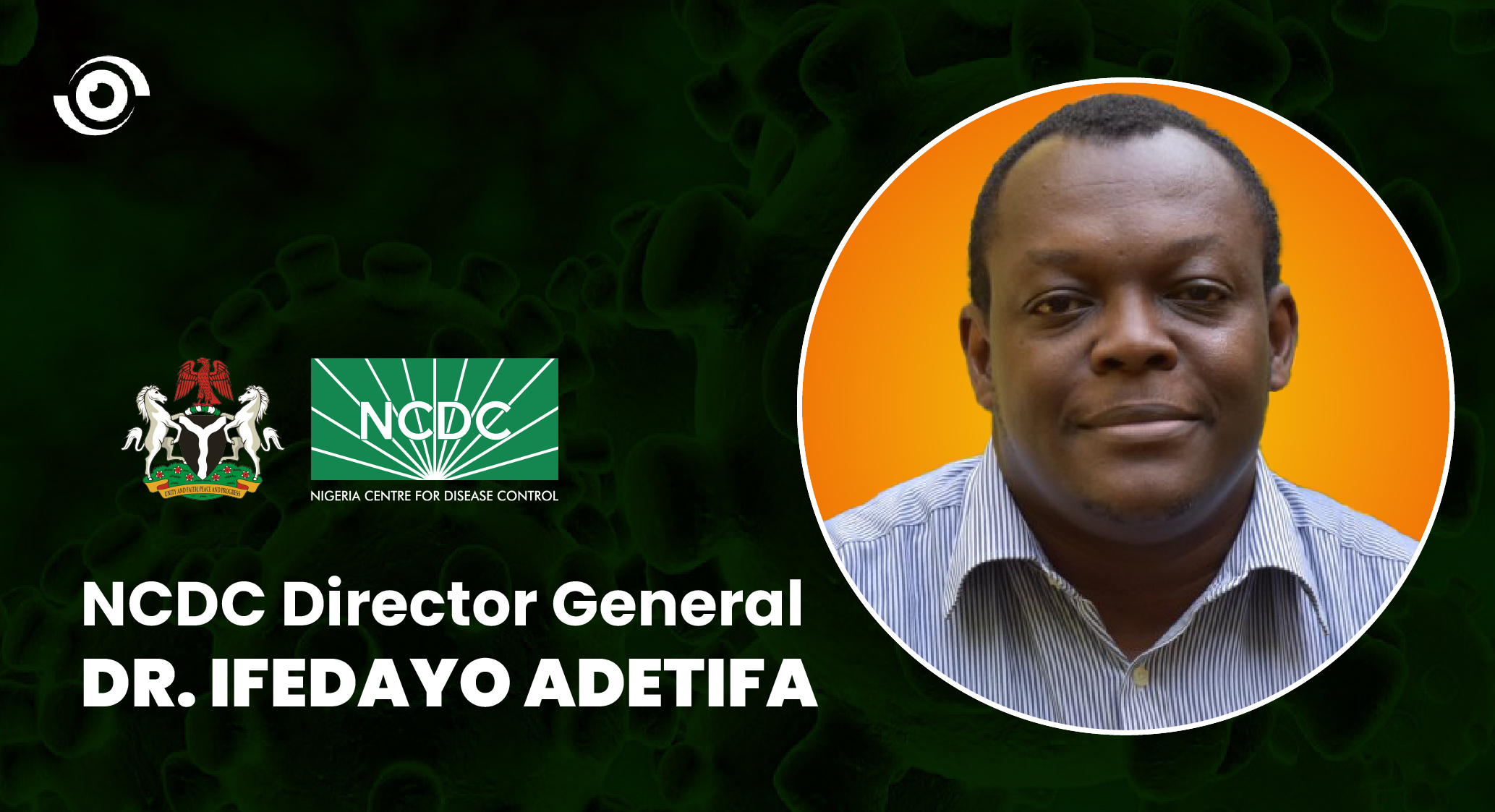Onyinye Oranezi & Dara Ajala-Damisa (Lead Writers)
Nigerians in the health sector and key stakeholders have waited with bated breath for the announcement of the new Director General of the Nigeria Centre for Disease Control (NCDC). This is following the appointment of its first Director General, Dr Chikwe Ihekweazu to lead WHO’s new Pandemic & Epidemic Intelligence hub in Berlin and Assistant Director-General for Health Emergency Intelligence. Our commentary that the ‘leadership of an organization matters as much as the organisation itself’ is even more evident, considering the organisation in question is the country’s national public health agency, with the mandate to lead the preparedness, detection and response to infectious disease outbreaks, and dealing with all public health emergencies.

The turn of the new decade ushered in fresh challenges globally especially for infectious disease outbreaks. More than ever, health security has taken on greater importance due to lessons being learnt from COVID-19 pandemic, where the emergence of a new virus has caused unprecedented human pain and economic damage. The important role of NCDC in strengthening Nigeria’s response to infectious disease outbreaks was even more evident as it had to simultaneously respond to the COVID-19, as well as existing endemic diseases like Lassa fever and cholera. It carried out these tasks with diligence and competence, winning over the confidence of Nigerians.
The intense anticipation for the new leadership ended today with the appointment of the new Director General of the NCDC. Dr Ifedayo Adetifa appointed on the 6th of September 2021 will be assuming his duties at the helm of Nigeria’s national public health institute as the tenure of incumbent DG of the NCDC, Dr Chikwe Ihekweazu comes to an end on the 1st of November 2021. Dr. Adetifa is an Epidemiologist and Consultant Paediatrician who is currently an Associate Professor of Infectious Diseases Epidemiology at the London School of Hygiene & Tropical Medicine (LSHTM), United Kingdom, and Clinical Epidemiologist at the Kenya Medical Research Institute (KEMRI)-Wellcome Trust Research Programme (KWTRP) in Kilifi, Kenya.
He is a graduate of the College of Health Sciences, University of Ilorin, Kwara State and completed his specialist training in Paediatrics and Child Health at the Lagos University Teaching Hospital (LUTH) Idi-Araba, Lagos and became a Fellow of the West Africa College of Physicians. He is a member of the Kenyan National Immunisation Coordinating Committee, and a member of the World Health Organisation, Africa Region’s (WHO-AFRO) Regional Immunisation Technical Advisory Group. His work to date has focused on investigating the epidemiology of vaccine-preventable childhood diseases, conducting epidemiological evaluation of vaccines; and on demonstrating the utility of seroepidemiology (the use of biological data and testing to identify current and past experiences with infectious diseases) for monitoring vaccination and profiling population immunity; all for informing vaccine policy.
Dr. Adetifa comes into the new role with experience and expertise in infectious disease epidemiology, positioning him firmly to lead NCDC in fulfilling its mandate to prevent, detect and respond to infectious disease outbreaks. His experience and advisory roles on vaccines and immunisation at the national and global level provides the country with the strengthened capability to respond to disease outbreaks, as the new DG has the broad based expertise to ensure the country is able to maintain steady preparedness. As we have all learnt, infectious disease outbreaks do not respect borders, so cross country and global collaboration and coordination is critical now more than ever. Dr Adetifa’s vast knowledge of infectious disease epidemiology in various countries will ensure that global best practice is incorporated in Nigeria’s response to infectious disease outbreaks.
As an infectious diseases epidemiologist, according to Dr Adetifa, the overarching aim of much of his research is to see equitable and effective protection against vaccine preventable diseases in the low- and middle-income countries of tropical Africa. He has invested many years of his career studying some of the most difficult challenges the country faces, now he has a unique opportunity to take the driver’s seat in finding solutions. This makes the new DG quite well placed for his role in Nigeria’s national public health institute.

Leadership for sustainability
Ensuring that Nigeria is able to sustainably fund its health security architecture, remains of paramount priority. A critical attribute that will be needed by the new DG as he steers the NCDC is captured by Dr Matshidiso Moeti, WHO Regional Director for Africa in an interview with the Guardian, “Now is not the time for complacency, it is a moment for cautious optimism, reflection and action. The next outbreak, whatever and wherever it may be, could present new and even more complex challenges and we must be prepared. This is not merely an option; it is a mandate”. Though five years old, this comment rings even more true for Nigeria and the global health community as new public health emergencies continue to arise at seeming breakneck speed.
Assuming the role of NCDC’s new Director-General, Dr. Adetifa will build on the existing strengths that the institute has been able to develop since it was given a legal mandate in November 2018. Over the past five years, Dr Ihekweazu has built the ship and sailed it through various storms. With a team of 500 staff, a network of state epidemiologists and their teams, enthusiastic partners and a supportive Ministry, NCDC can only grow from strength to strength, as it pushes on its mandate to prevent, detect and respond to infectious disease outbreaks.
Nigeria Health Watch wishes Dr Adetifa the best as he takes on his new mandate, at the helm of NCDC, protecting the health of Nigerians.



Dr Adetifa is well prepared for his new position as the DG of the NCDC. He will surely bring his many years of experience as a clinician-researcher to bear in his new responsibility. I personally wish him well.
Welcome and congratulations to Dr Ifedayo Adetifa. The journey to one health for sustained health security for Nigeria and the world fires on.